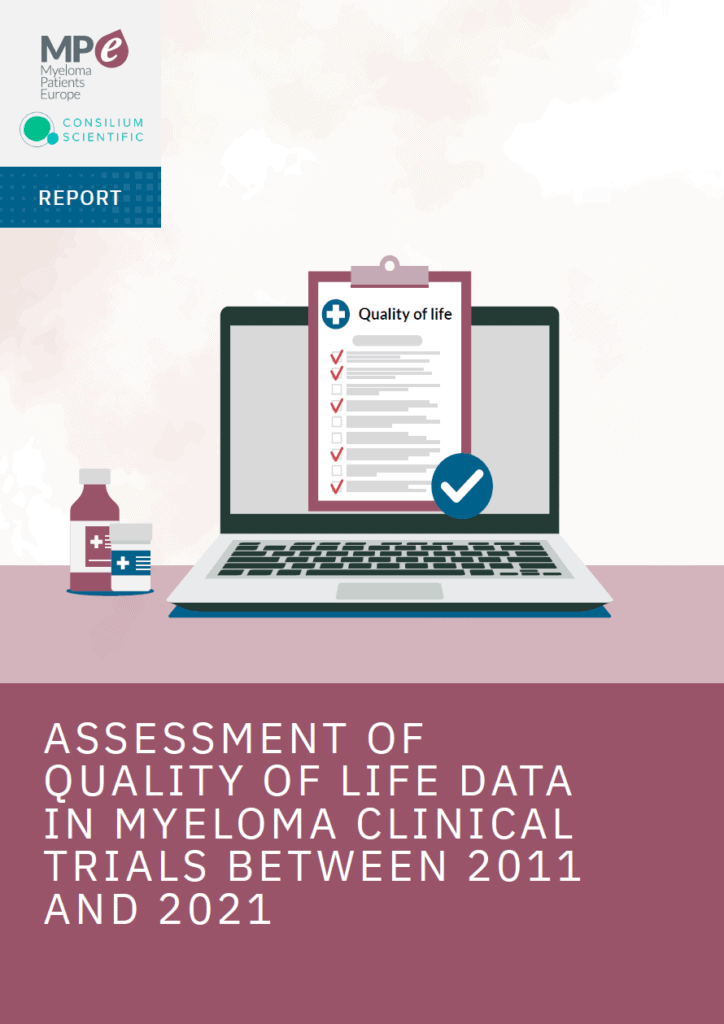Survival in myeloma has improved substantially over the last two decades. Still, patients face a range of treatment and disease-related events and symptoms, which can negatively influence their quality of life (QoL). To measure QoL and the impact different treatments can have on patients’ lives, clinical trials increasingly gather data reported by patients. Patient-reported QoL and Health-Related QoL data generated during a clinical trial or treatment are known as patient reported outcomes (PRO) and are gathered using questionnaires known as PRO measures (PROMs). A PRO is a report that comes directly from the patient about the status of their health condition without any interpretation by clinicians or anyone else.
Enhanced QoL has been shown to improve patient experience and promote prognosis, making QoL measurement a meaningful factor in myeloma patient treatment. There is an increasing consensus that the collection of QoL and HRQoL data using validated PROMs is important to assist in understanding the full impact myeloma has on a patient and their daily lives. This type of data can also assist with regulatory and reimbursement decisions and in patient decision-making in healthcare systems.
To understand how QoL/HRQoL are currently being measured in myeloma, MPE and Consilium Scientific undertook research to analyse registered myeloma clinical trials and published literature between 2011 and 2021. The results of this analysis can be found in the following report, “Assessment of quality of life data in myeloma clinical trials between 2011 and 2021″.
Alongside the analysis, this report provides recommendations for the patient community and other stakeholders (clinicians, pharmaceutical firms, research institutions, charities and reimbursement bodies) to enhance the collection, reporting, justification and utility of QoL data in myeloma research and clinical practice.
If you have any questions or comments about the research, please contact Kate Morgan at morgan@mpeurope.org.

Click here to download the report “Assessment of quality of life data in myeloma clinical trials between 2011 and 2021”.
Click here to download the executive summary of the report.
To read and download the annexes, please, visit:
Watch the recording of the webinar The importance and challenges of measuring quality of life in myeloma clinical trials organised by MPE on 31 May 2023
Click to check infographics on QoL data in myeloma clinical trials between 2011 and 2023: .


